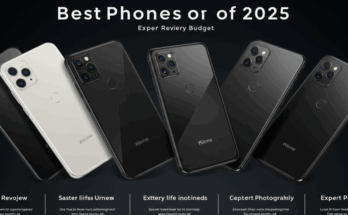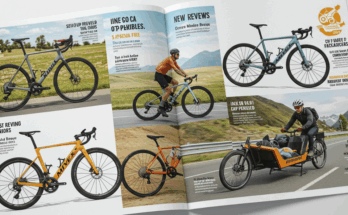The thrill of driving a new car is unmatched—feeling the engine hum, the steering wheel respond, and the open road beckon. But with so many models flooding the market, choosing the right vehicle can feel like navigating a maze. That’s where expert car reviews and ratings come in, offering a clear lens to evaluate performance, comfort, technology, and value. In this article, we dive into the world of professional car reviews, spotlighting top models of 2025, breaking down what makes them stand out, and guiding you toward an informed decision for your next ride.
Why Expert Car Reviews Matter
The Value of Unbiased Insights
When you’re investing in a car, you’re not just buying a vehicle—you’re committing to years of commutes, road trips, and daily adventures. Expert car reviews provide an unbiased perspective, cutting through marketing hype to deliver real-world insights. Professional reviewers spend hours behind the wheel, testing everything from acceleration to infotainment systems. They assess how a car handles tight city streets, long highway stretches, and winding backroads. Unlike user reviews, which can be subjective or skewed, expert evaluations follow rigorous methodologies, ensuring consistency and reliability. For instance, reviewers often use standardized scoring systems to rate aspects like fuel efficiency, safety, and comfort, giving you a clear benchmark to compare models.
Decoding Ratings Systems
Car ratings aren’t just numbers thrown together—they’re the result of meticulous testing. Organizations like Kelley Blue Book, Edmunds, and MotorTrend use comprehensive criteria to assign scores. These include performance metrics (horsepower, torque, handling), safety ratings from crash tests (like those from NHTSA or IIHS), and user experience factors (interior quality, tech features, cargo space). For example, a car might score an 8/10 for performance but a 6/10 for fuel economy, helping you weigh trade-offs. Understanding these ratings empowers you to prioritize what matters most—whether it’s a zippy sports car or a family-friendly SUV with top safety marks.
Top Car Picks for 2025: Expert Highlights
Sedans: Balancing Style and Efficiency
Toyota Camry Hybrid
The 2025 Toyota Camry Hybrid continues to dominate the midsize sedan market, earning high praise for its blend of fuel efficiency and refined driving dynamics. Reviewers at Edmunds gave it a 9.2/10, lauding its 51 mpg combined fuel economy and smooth ride quality. The Camry’s redesigned interior feels upscale, with a 12.3-inch touchscreen infotainment system that’s intuitive and responsive. Its hybrid powertrain delivers 225 horsepower, offering peppy acceleration without sacrificing eco-friendliness. Safety is a standout, with Toyota’s Safety Sense 3.0 suite, including adaptive cruise control and lane-keeping assist, earning top IIHS scores. However, some experts note the rear legroom is slightly cramped for taller passengers, a minor drawback in an otherwise stellar package.
Honda Accord
The Honda Accord remains a favorite for its versatility and value, scoring an 8.8/10 from Kelley Blue Book. Its 1.5-liter turbocharged engine (192 horsepower) strikes a balance between power and efficiency, achieving 37 mpg on the highway. Reviewers praise the Accord’s spacious cabin, which comfortably seats five, and its user-friendly tech, including wireless Apple CarPlay and Android Auto. The ride is composed, soaking up road imperfections, though it’s less sporty than rivals like the Mazda3. Experts also highlight its five-star NHTSA safety rating, making it a top pick for families. If you’re after a sedan that checks every box without breaking the bank, the Accord delivers.
SUVs: Power and Practicality
Mazda CX-50
For those craving adventure, the 2025 Mazda CX-50 is a compact SUV that blends rugged capability with premium style. MotorTrend awarded it an 8.9/10, commending its upscale interior and dynamic handling. Available with a 2.5-liter turbo engine (256 horsepower), the CX-50 feels nimble on twisty roads while offering standard all-wheel drive for off-road jaunts. Its 10.25-inch infotainment display is sharp, though some reviewers note the rotary controller takes getting used to. Cargo space is generous at 31.4 cubic feet, and safety features like blind-spot monitoring earned it an IIHS Top Safety Pick+ award. The only critique? Fuel economy lags slightly at 27 mpg combined for the turbo model.
Hyundai Tucson Hybrid
The Hyundai Tucson Hybrid is a standout in the compact SUV segment, earning a 9.0/10 from Car and Driver. Its 1.6-liter turbo hybrid powertrain (226 horsepower) achieves an impressive 38 mpg combined, making it a fuel-sipping alternative to gas-only rivals. Reviewers love the Tucson’s bold design, with sleek LED headlights and a modern grille, paired with a tech-heavy interior. The 10.25-inch digital gauge cluster and touchscreen are crisp, and features like heated seats and a panoramic sunroof add luxury. Its smooth ride and spacious rear seats make it ideal for families, though some experts note the hybrid’s acceleration feels less punchy than competitors. With a five-star NHTSA safety rating, it’s a practical yet stylish choice.
Electric Vehicles: The Future of Driving
Tesla Model Y
The Tesla Model Y continues to lead the electric SUV market, with a 9.1/10 rating from Edmunds. Its Long Range model offers an EPA-estimated 330 miles of range, outpacing most competitors. Reviewers praise its blistering acceleration (0-60 mph in 4.8 seconds) and minimalist interior, dominated by a 15-inch touchscreen that controls nearly every function. Over-the-air updates keep the software fresh, adding features like improved navigation and gaming. However, some experts critique the firm ride and lack of physical buttons, which can distract drivers. Safety is a strong suit, with a five-star NHTSA rating and advanced driver aids like Autopilot. If range and tech are your priorities, the Model Y is tough to beat.
Rivian R2
The 2025 Rivian R2 is a newcomer that’s turning heads, earning an 8.7/10 from MotorTrend. This compact electric SUV offers a 300-mile range and a dual-motor setup delivering 400 horsepower. Its off-road prowess, with 12 inches of ground clearance, sets it apart in the EV space. Reviewers love the sustainable interior, featuring vegan leather and recycled materials, and the 11-inch infotainment screen is responsive. Cargo space is ample at 35 cubic feet, ideal for weekend getaways. Some note the R2’s price ($45,000 starting) is steep for a compact SUV, but its blend of performance and eco-consciousness makes it a compelling choice. IIHS testing is pending, but early safety data is promising.
How to Use Car Reviews to Choose Your Perfect Ride
Prioritize Your Needs
Expert reviews are a goldmine, but they’re most useful when you align them with your priorities. Are you a daily commuter needing fuel efficiency, or a weekend adventurer seeking off-road capability? Make a list of must-haves—maybe a spacious cargo area for gear or advanced safety tech for peace of mind. Cross-reference these with reviewer scores. For instance, if safety is key, focus on models with IIHS Top Safety Pick awards or five-star NHTSA ratings. If tech is your thing, prioritize cars with high marks for infotainment and connectivity, like the Tesla Model Y or Hyundai Tucson.
Compare and Test Drive
Reviews narrow the field, but nothing beats a test drive. Experts can tell you the Mazda CX-50 handles like a dream, but you need to feel its steering response yourself. Use reviews to create a shortlist, then visit dealerships to experience the ride. Pay attention to details reviewers highlight—like the Camry’s smooth hybrid transitions or the Model Y’s touchscreen learning curve. Compare ratings across sources (Edmunds, MotorTrend, Kelley Blue Book) to spot trends, as one reviewer’s opinion might differ slightly. Most importantly, drive the car in conditions you’ll use it in—city streets, highways, or even gravel roads.
FAQ
What makes a car review “expert”?
An expert car review is conducted by professional automotive journalists or organizations with standardized testing protocols. They evaluate vehicles based on performance, safety, comfort, technology, and value, often using numerical ratings for consistency. Unlike user reviews, expert reviews are unbiased and based on extensive driving experience across various conditions.
How are car ratings determined?
Car ratings are calculated using a combination of objective and subjective metrics. Objective factors include measurable data like fuel economy, horsepower, cargo space, and crash test results from NHTSA or IIHS. Subjective factors include ride quality, interior comfort, and design appeal, assessed by experienced reviewers. Each outlet (e.g., Edmunds, MotorTrend) has its own scoring system, typically on a 1-10 scale.
Which 2025 cars are best for families?
Family-friendly cars prioritize safety, space, and comfort. The 2025 Honda Accord and Hyundai Tucson Hybrid are top picks, offering five-star NHTSA safety ratings, spacious cabins, and family-oriented features like rear-seat legroom and easy-to-use infotainment. The Mazda CX-50 is another great option for families needing cargo space and all-wheel drive.
Are electric vehicles worth considering in 2025?
Absolutely. Electric vehicles like the Tesla Model Y and Rivian R2 offer impressive range (300+ miles), lower running costs than gas vehicles, and advanced tech. They’re ideal for eco-conscious drivers or those seeking performance. However, consider charging infrastructure in your area and your budget, as EVs can have higher upfront costs.
How can I trust car reviews?
Stick to reputable sources like Edmunds, Kelley Blue Book, MotorTrend, or Car and Driver, which employ experienced journalists and transparent methodologies. Cross-reference multiple reviews to identify consistent strengths and weaknesses. Always pair reviews with a test drive to confirm the car meets your personal needs.



